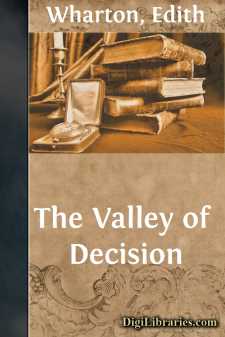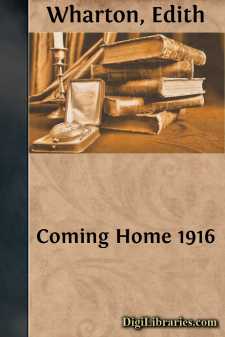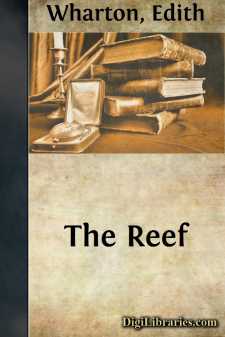Categories
- Antiques & Collectibles 13
- Architecture 36
- Art 48
- Bibles 22
- Biography & Autobiography 815
- Body, Mind & Spirit 144
- Business & Economics 28
- Children's Books 18
- Children's Fiction 14
- Computers 4
- Cooking 94
- Crafts & Hobbies 4
- Drama 346
- Education 58
- Family & Relationships 59
- Fiction 11835
- Games 19
- Gardening 17
- Health & Fitness 34
- History 1378
- House & Home 1
- Humor 147
- Juvenile Fiction 1873
- Juvenile Nonfiction 202
- Language Arts & Disciplines 89
- Law 16
- Literary Collections 686
- Literary Criticism 179
- Mathematics 13
- Medical 41
- Music 40
- Nature 180
- Non-Classifiable 1768
- Performing Arts 7
- Periodicals 1453
- Philosophy 65
- Photography 2
- Poetry 896
- Political Science 203
- Psychology 44
- Reference 154
- Religion 515
- Science 126
- Self-Help 85
- Social Science 83
- Sports & Recreation 34
- Study Aids 3
- Technology & Engineering 60
- Transportation 23
- Travel 463
- True Crime 29
Our website is made possible by displaying online advertisements to our visitors.
Please consider supporting us by disabling your ad blocker.
The Valley of Decision
by: Edith Wharton
Description:
Excerpt
THE OLD ORDER.
Prima che incontro alla festosa fronte
I lugubri suoi lampi il ver baleni.
1.1.
It was very still in the small neglected chapel. The noises of the farm came faintly through closed doors—voices shouting at the oxen in the lower fields, the querulous bark of the old house-dog, and Filomena's angry calls to the little white-faced foundling in the kitchen.
The February day was closing, and a ray of sunshine, slanting through a slit in the chapel wall, brought out the vision of a pale haloed head floating against the dusky background of the chancel like a water-lily on its leaf. The face was that of the saint of Assisi—a sunken ravaged countenance, lit with an ecstasy of suffering that seemed not so much to reflect the anguish of the Christ at whose feet the saint knelt, as the mute pain of all poor down-trodden folk on earth.
When the small Odo Valsecca—the only frequenter of the chapel—had been taunted by the farmer's wife for being a beggar's brat, or when his ears were tingling from the heavy hand of the farmer's son, he found a melancholy kinship in that suffering face; but since he had fighting blood in him too, coming on the mother's side of the rude Piedmontese stock of the Marquesses di Donnaz, there were other moods when he turned instead to the stout Saint George in gold armour, just discernible through the grime and dust of the opposite wall.
The chapel of Pontesordo was indeed as wonderful a storybook as fate ever unrolled before the eyes of a neglected and solitary child. For a hundred years or more Pontesordo, a fortified manor of the Dukes of Pianura, had been used as a farmhouse; and the chapel was never opened save when, on Easter Sunday, a priest came from the town to say mass. At other times it stood abandoned, cobwebs curtaining the narrow windows, farm tools leaning against the walls, and the dust deep on the sea-gods and acanthus volutes of the altar. The manor of Pontesordo was very old. The country people said that the great warlock Virgil, whose dwelling-place was at Mantua, had once shut himself up for a year in the topmost chamber of the keep, engaged in unholy researches; and another legend related that Alda, wife of an early lord of Pianura, had thrown herself from its battlements to escape the pursuit of the terrible Ezzelino. The chapel adjoined this keep, and Filomena, the farmer's wife, told Odo that it was even older than the tower and that the walls had been painted by early martyrs who had concealed themselves there from the persecutions of the pagan emperors.
On such questions a child of Odo's age could obviously have no pronounced opinion, the less so as Filomena's facts varied according to the seasons or her mood, so that on a day of east wind or when the worms were not hatching well, she had been known to affirm that the pagans had painted the chapel under Virgil's instruction, to commemorate the Christians they had tortured. In spite of the distance to which these conflicting statements seemed to relegate them, Odo somehow felt as though these pale strange people—youths with ardent faces under their small round caps, damsels with wheat-coloured hair and boys no bigger than himself, holding spotted dogs in leash—were younger and nearer to him than the dwellers on the farm: Jacopone the farmer, the shrill Filomena, who was Odo's foster-mother, the hulking bully their son and the abate who once a week came out from Pianura to give Odo religious instruction and who dismissed his questions with the invariable exhortation not to pry into matters that were beyond his years....












